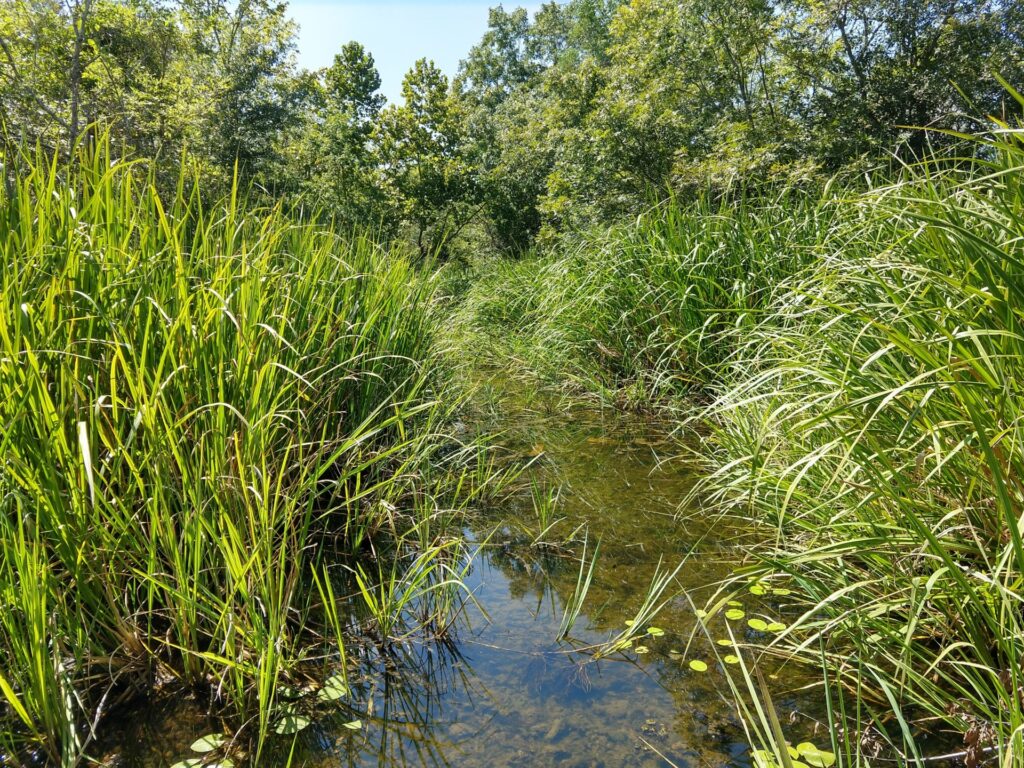Adams Bayou riparian and stream ecosystem workshop set for April 16 in Orange
Free workshop for residents and landowners will provide continuing education units
The Texas Water Resources Institute, TWRI, will host a free Texas Riparian and Stream Ecosystem Education Program workshop from 8 a.m.-4:30 p.m. on April 16 in Orange.

The workshop is co-hosted by the Texas A&M AgriLife Extension Service and serves residents interested in learning more about land and water stewardship in the Adams Bayou watershed.
The morning session will take place at the Orange County Convention and Expo Center at 11475 Farm-to-Market Road 1442. The afternoon session will include a walk and presentations along Cow Bayou.
Attendees must RSVP by April 9 at tx.ag/April16Orange or by email to Alexander Neal, TWRI program specialist, Bryan-College Station, at [email protected].
“Riparian education workshops help motivate informed landowners and local residents to adopt and support practices to better manage riparian and stream ecosystems,” Neal said. “Water quality and quantity is directly affected by the proper management, protection and restoration of riparian areas. Proper management also enhances soundness of stream banks, fish communities and aquatic habitats.”
Workshop targets riparian and stream ecosystems
Riparian areas are the green, vegetated land areas adjacent to the banks of streams, creeks, bayous, rivers or lakes. Neal said they are unique and important ecosystems that provide many benefits including habitat and forage.
The Adams Bayou watershed is the focus of water quality improvement efforts by stakeholders.
“Stakeholders recognize successful water quality improvement requires implementing a variety of management strategies,” said Letty LeBert, AgriLife Extension agriculture and natural resources agent in Orange County. “The riparian and stream workshop is an educational event supporting this effort.”
Neal said the workshop will focus on the nature and function of stream and riparian zones as well as the benefits and economic impacts from properly functioning riparian systems.
“The goal of the workshop is for participants to better understand riparian and watershed processes, the benefits of healthy riparian areas and what resources are available to prevent degradation while improving water quality,” he said.
Riparian and stream ecosystem workshop agenda
Presentations will be given by representatives of TWRI, the U.S. Department of Agriculture Natural Resources Conservation Service, AgriLife Extension, Texas Parks and Wildlife Department, the Texas A&M Forest Service and the Texas Riparian Association.
The program will include a lunchtime presentation with a catered lunch available for $15, or participants can bring their own lunches. The optional lunch fee helps cover coffee and snack breaks included.
Neal said they are able to offer the workshop without cost thanks to program funding provided through a Clean Water Act Section 319(h) nonpoint source grant from the Texas State Soil and Water Conservation Board and the U.S. Environmental Protection Agency.
Ricky Linex, retired wildlife biologist, Natural Resources Conservation Service, Weatherford, said participants will receive a certificate of completion and appropriate continuing education unit certificates at the conclusion of the training.
Continuing education credits available
The workshop offers many types of continuing education units, including three units — two general and one integrated pest management — for Texas Department of Agriculture pesticide license holders.
Foresters and professional loggers can receive six hours from the Texas Forestry Association, six and half hours from the Society of American Foresters, and eight hours from the International Society of Arboriculture.
It offers seven credits from Texas Floodplain Management Association, seven hours for Certified Crop Advisers, and six hours for Texas Nutrient Management Planning specialists. The program may also be used for continuing education units for professional engineers and architects.
The riparian education program is managed by the Texas Water Resources Institute, a unit of Texas A&M AgriLife Research that combines expertise across the agencies of Texas A&M AgriLife.
For more information, contact Neal, visit http://texasriparian.org or go to Facebook at https://www.facebook.com/TexasRiparianAssociation.


